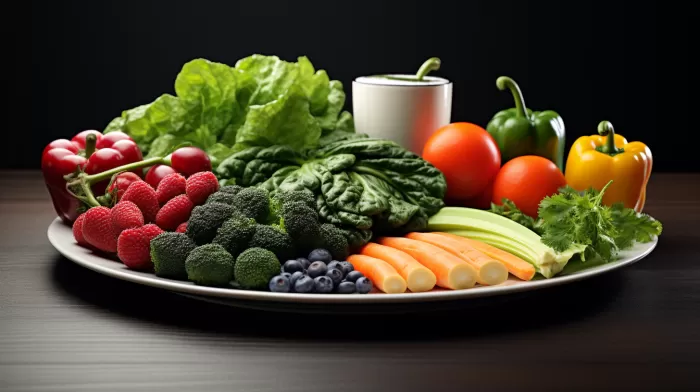Breast cancer has claimed the lives of around 40,000 women in the U.S. each year, but some simple dietary changes could significantly improve your chances of beating this deadly disease. According to lab tests carried out at Thomas Jefferson University, cutting back on the number of calories you consume while undergoing breast cancer treatment could even extend your life.
These tests revealed that decreasing daily caloric intake by 30% can help combat the triple-negative subtype of breast cancer, one of the most dangerous forms of this disease. By reducing your food intake, the cancer’s ability to spread and metastasize outside of the breasts becomes restricted.
This drop in calories is seen to decrease the cancer cells’ production of microRNAs 17 and 20 (miR 17/20), which is associated with triple-negative cancers that metastasize and kill. Researchers found that when breast cancer patients went through hormonal therapy to block tumors and took steroids to mitigate chemotherapy side effects, their metabolism changed, and they gained an average of 10 pounds during a year of treatment. Regrettably, this weight gain made breast cancer patients more likely to have a shorter lifespan.
“Calorie restriction promotes epigenetic changes in the breast tissue that keep the extracellular matrix strong,” says researcher Nicole Simone. “A strong matrix creates a sort of cage around the tumor, making it more difficult for cancer cells to escape and spread to new sites in the body.”
Calorie restriction doesn’t mean starving
It is crucial to understand that calorie restriction does not mean you should starve yourself. Instead, it involves consuming fewer calories while still maintaining proper nutrition. The focus should be on consuming nutrient-dense, anti-inflammatory foods that support overall health and breast cancer prevention.
Nutrient-dense foods to focus on
Here are some examples of nutritious foods to incorporate into your anti-cancer dietary plan:
- Fruits and vegetables: Cruciferous vegetables like broccoli, kale, and cauliflower are particularly important as they contain compounds that help detoxify cancer-promoting substances and fight inflammation. Additionally, fruits like blueberries, strawberries, and cherries are packed with antioxidants that can protect your cells from damage.
-
Lean proteins: Choose healthy protein options, such as fish, chicken, or plant-based proteins like lentils and beans. These proteins offer essential amino acids without the added saturated fat found in fatty cuts of meat.
-
Healthy fats: Consuming fats from sources like avocados, nuts, seeds, and olive oil can help reduce inflammation in the body. Omega-3 fatty acids found in fatty fish like salmon and mackerel are particularly good at fighting inflammation, which has been linked to cancer.
-
Whole grains: Opt for whole grains instead of refined grains, as they contain more fiber, vitamins, and minerals. Consuming a diet rich in whole grains can help lower the risk of various cancers, including breast cancer.
-
Herbs and spices: Use a variety of herbs and spices such as turmeric, ginger, and cinnamon that are packed with anti-inflammatory and antioxidant properties. They can help your body maintain its defense against potential cancer cells.
Limiting inflammatory foods
Another essential aspect of an anti-cancer dietary plan is limiting or avoiding specific foods that contribute to inflammation and may increase the risk of cancer. Some examples of foods to avoid or limit include:
- Refined sugar: Reduce or eliminate added sugars, as they can promote inflammation and feed cancer cells. Stick to natural sugar sources like fruits to satisfy your cravings.
-
Processed meats and red meat: Regular consumption of processed and red meat has been linked to a higher risk of some cancers. Limit these meats in your diet and opt for lean proteins instead.
-
Trans fats: Avoid foods containing trans fats, as they cause inflammation and increase the risk of heart disease and certain cancers.
-
Alcohol: Excessive alcohol consumption has been linked to an increased risk of breast cancer. Limit your alcohol intake or refrain from drinking entirely.
Incorporating an anti-cancer dietary plan can be a weapon against breast cancer. Reducing your daily caloric intake while focusing on nutrient-dense, anti-inflammatory foods can help support your overall health and aid in cancer prevention. Remember, it is essential to speak with your healthcare professional before making significant dietary changes, as they can provide tailored guidance based on your health history and current situation.



